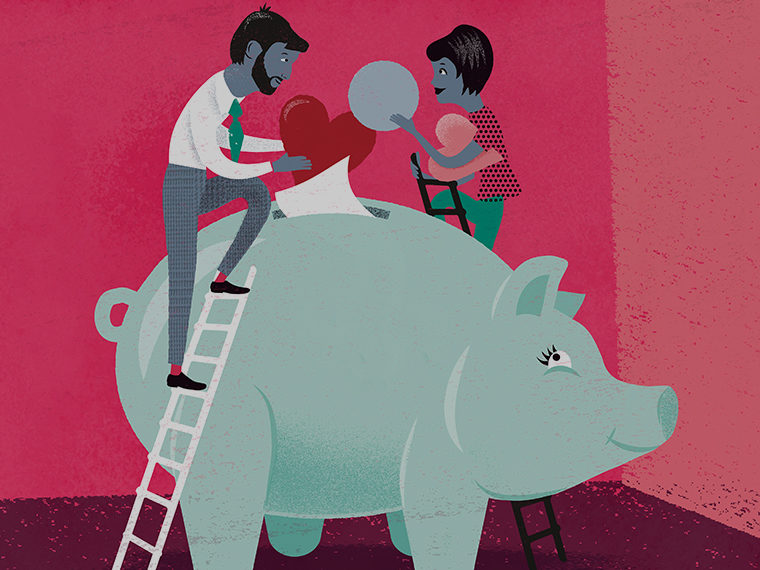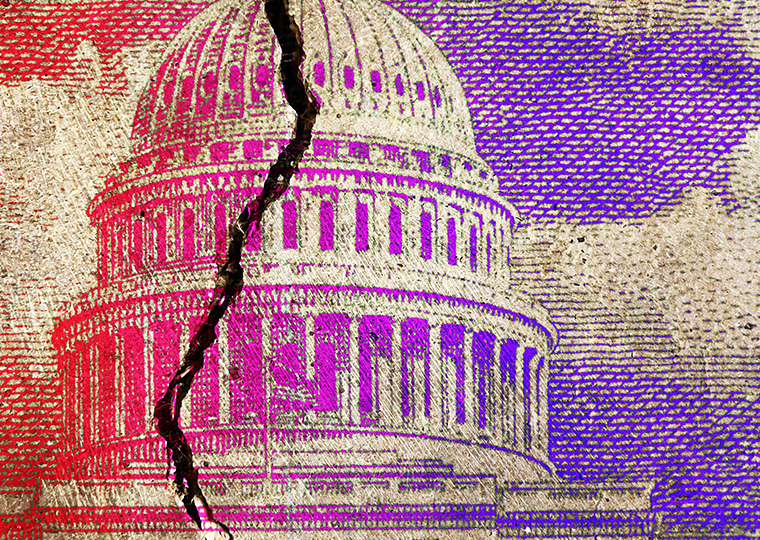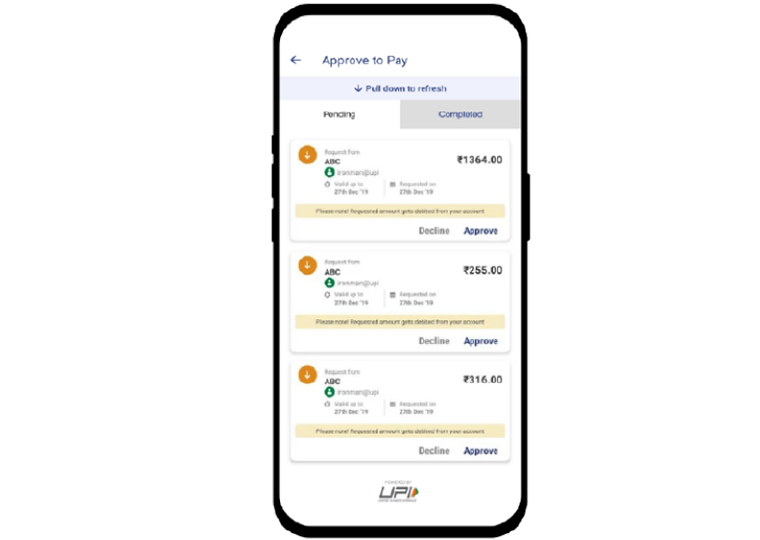Popular notion that the poor console themselves with fantasy is perhaps more a comfort to the rich
Those with limited financial means are less able to harness the art of daydreaming, according to a working paper by UCLA Anderson’s Sherry Jueyu Wu and Princeton’s Nathan N. Cheek and Eldar Shafir.
Three studies involving more than 600 participants suggest that people who are under financial stress find it harder to escape by letting their minds wander. Experiments that primed participants to focus on financial concerns created a hurdle to pleasurable mind wandering among those who perceive their financial situation as being challenged, compared with people who report feeling less financial pressure.
This pushes against a common trope, the authors note, that the poor are more attuned to and able to use their imaginations to provide relief — however transitory — from their money stress:
Opt In to the Review Monthly Email Update.
“Our work suggests that such pleasurable thinking may not, after all, offer an escape for the poor — but, ironically, believing that it does may offer an escape of sorts for those who are better off,” they write. “Believing that the poor are better able than oneself to find pleasure in the simple — and cost-free — act of thinking may alleviate some discomfort in imagining the suffering of others, and may help maintain belief in a just world.”
Indeed, in a warmup to the core focus of their study, the researchers found that a “significant majority” of 165 people surveyed thought the poor were more likely than the rich to: “enjoy imagining a beach vacation,” “to enjoy generally using their imagination” and “immerse themselves in fantasy to distract themselves from the present or the future.”
| Question | Percent Choosing Poor Person | Percent Choosing Rich Person |
| Of these two people, who do you think is better able to distract themselves from their problems by imagining a different life? | 75.8% | 24.2% |
| Of these two people, who do you think is better able to immerse themselves in a fantasy to distract themselves from the present or future? | 78.2% | 21.2% |
The Inescapable Weight of Money Stress
Allowing our imagination to take the wheel for a while requires having the focus and control to push aside distractions. Past research Princeton’s Shafir collaborated on made the case that the financial worries of the poor are a drain on their ability to solve problems. This new research explores how the “scarcity mindset” specifically impacts the ability to escape into one’s head.
The researchers establish the relationship between one’s financial worries and one’s ability to focus in general. More than 200 participants were asked a series of eight questions to ascertain their ability to practice mindfulness, or focus. On a scale of 1 to 7, participants rated statements such as “I find it difficult to pay attention to the ‘here and now’ and to concentrate on that which currently happens.” Participants were also asked a series of questions that gauged their perception of their financial situation. (ex: “How tight is your daily budget?”) as well as reporting their current income.
There was a strong correlation between participants who reported a high perceived level of financial constraints and their self-reported struggle to practice mindfulness.
The Beach Is Out of Reach
The researchers then explored how the relationship between money and mindfulness can hinder one’s ability to escape into pleasurable thoughts.
More than 400 visitors to the Museum of Science and Industry in Chicago were recruited for a field experiment. Participants fell into a broad range of income levels from less than $10,000 to more than $170,000.
Half were sorted into a “scarcity” group that was run through a few scenarios that primed them to think about financial worries. One example:
“Imagine that your car is having some trouble and requires a $1,500 service. Unfortunately, your auto insurance will only cover 10% of the cost. Your options are: pay in full, take a loan or take a chance and forgo the service… How would you go about making this decision? Would it be an easy or a difficult decision for you to make?”
The other half, the control group, was asked to ponder a series of scenarios that touched on political issues, rather than money issues.
With those two groups primed, everyone was then ushered through three 30-second guided imagery sessions. (For the uninitiated, guided imagery is considered an accessible means to transport ourselves out of our present by imagining with sensory specificity — sound, sight, feel, smell etc. — a peaceful scene.)
The first session was a mind cleanser: an image of blue sky and the instruction to relax. In the next session, participants were shown a secluded beach and asked to visualize being in that setting and the sensory experience it might trigger. (Sand in your toes, the sound of waves etc.) The last session was back to the blue sky and an instruction to think about anything but money.

After each session, participants were run through a word identification exercise where specific words (including decoy nonwords) flashed on the screen, and they had to weigh in whether the words were in fact real English words.
Those words fell into three categories. money (dollar, expensive), neutral (truck, lamp) and scene-related words (wave, water, sea.) Participants in the control group who had pondered political scenarios, got some political words (campaign, liberal, vote) in their exercise.
The researchers recorded how fast a participant identified a word as being real. The speed of a response in the beach scene session was considered a proxy for mindfulness: The faster the response, the more mindfulness had been achieved.
Categorizing Levels of Financial Stress
The researchers analyzed the response time in relation to how a participant reported their perceived level of financial stress. Based on participants’ answers to a series of questions, they were sorted into either a “poor” or “rich” bucket based on how they viewed their financial situation.
The reaction time for rich and poor participants in the control group during the beach scene session was similar. That is, there was no discernable difference in their mindfulness when they had not been primed to focus on money issues.
For participants primed to think about stressful money issues, the poor identified money words a lot faster than rich participants. And the poor responded more slowly to beach-related words. There was no difference between how the poor and rich participants reacted to the nonwords.
In the session where participants were asked to think about anything but money, once again the poor had a faster reaction time to money words than the rich, suggesting they were less successful in letting go of the money focus.
Participants also reported on a scale of 1 to 9 (not at all to extremely) whether the experiment was enjoyable — the extent to which they felt their mind wandered during the exercise.
There was no divergence among poor and rich in terms of their self-reported sense of whether their mind wandered.
But there was a difference in level of enjoyment. Participants whose subjective reporting of their financial condition sorted into the “poor” group, had a median self-reported enjoyability score of 5.3, compared with 6.3 for participants who fell into the “rich” category. Yet in the control group there was no difference in how participants rated the exercise.
Featured Faculty
-
Sherry Jueyu Wu
Assistant Professor of Management and Organizations and Behavioral Decision Making
- Eldar Shafir
About the Research
Wu, S.J., Cheek, N., Shafir, E. (2021). Scarcity Undermines Pleasurable Thinking.






